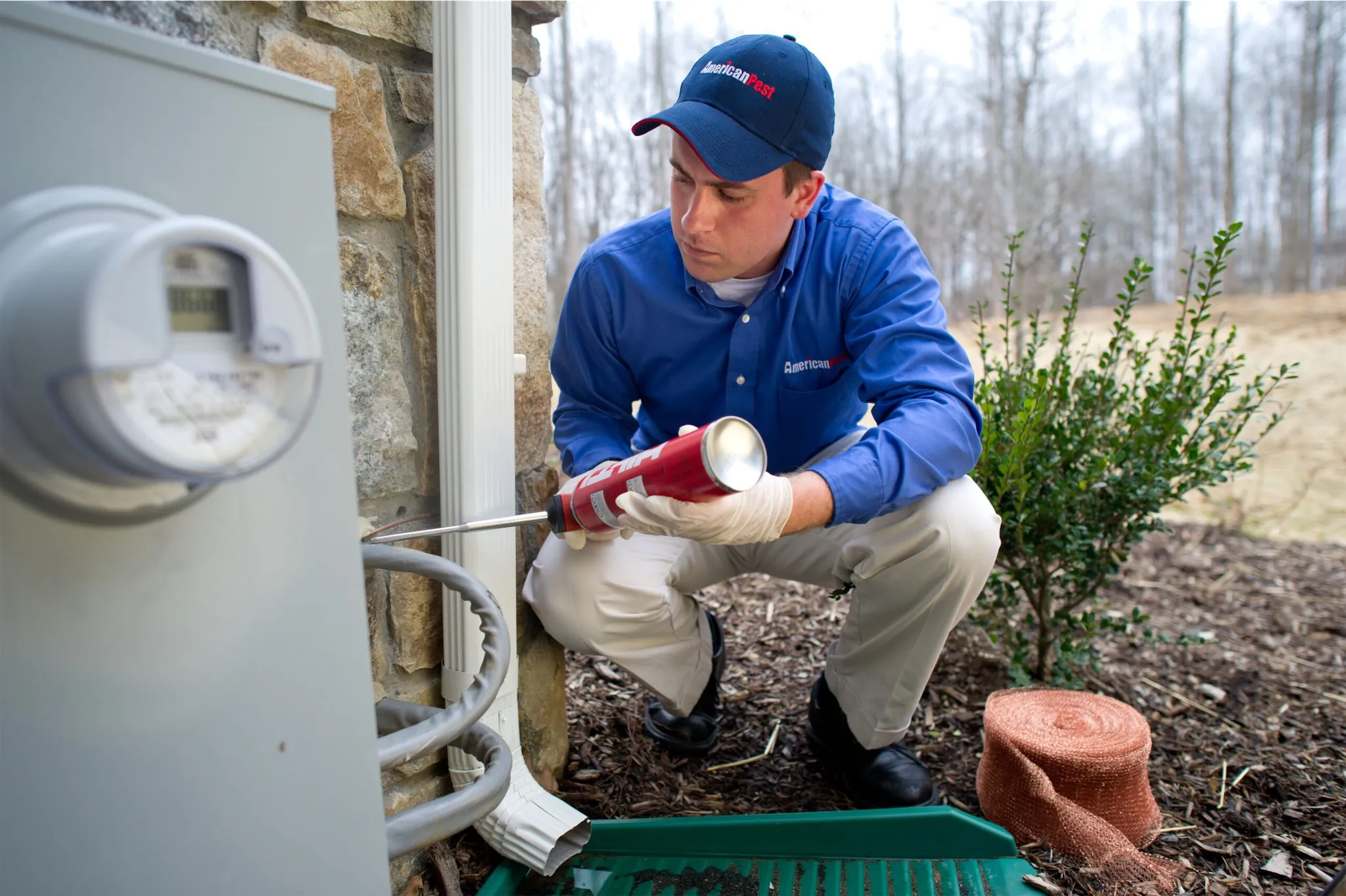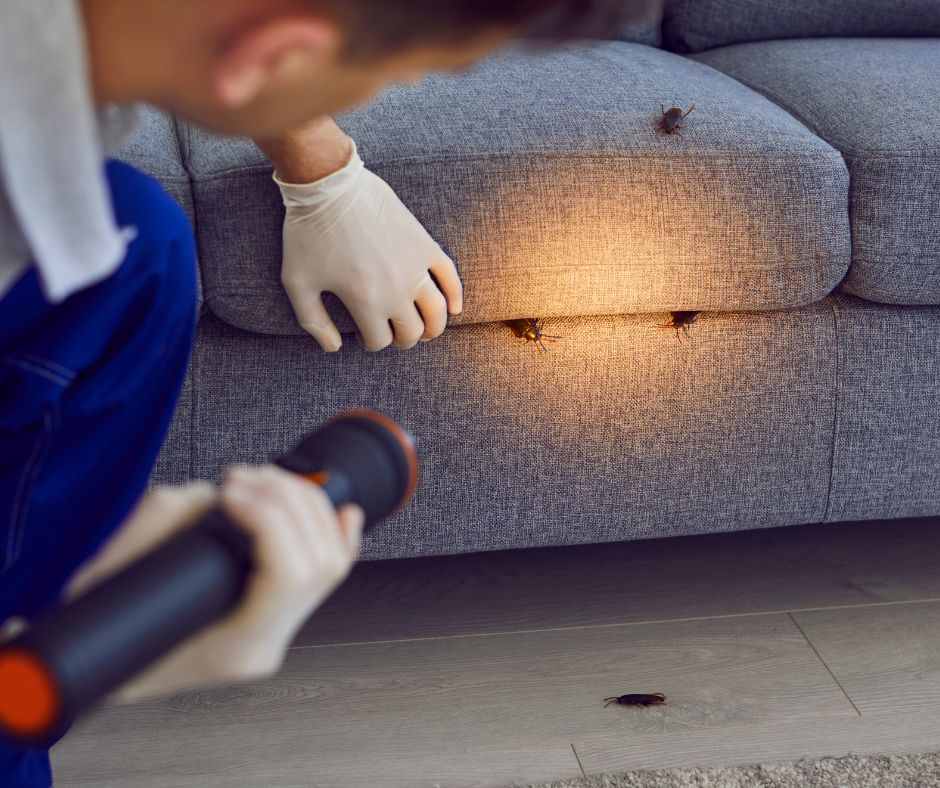Comprehensive Pest Control Services to Protect Your Business in Port Charlotte
Wiki Article
Discover the Relevance of Parasite Control in Keeping a Healthy Environment and Treatment Methods

The Function of Insects in Environments
Insects, typically checked out entirely as nuisances, play a diverse role in ecosystems that is vital for keeping environmental balance. They contribute significantly to numerous eco-friendly processes, including pollination, vitamins and mineral biking, and insect control. Numerous insect varieties, such as butterflies and , are crucial pollinators for a large range of plants, which in turn sustains biodiversity and food manufacturing.Furthermore, insects act as victim for numerous predators, creating a critical web link in food webs. This connection guarantees the survival of various types and helps manage populations within ecological communities (Termite treatment Port Charlotte). Moreover, decomposer insects, such as particular beetles and fungi, contribute in breaking down raw material, therefore enriching soil and facilitating vitamins and mineral recycling.
Conversely, while bugs can be advantageous, their overpopulation or intrusion into non-native settings may interfere with these ecological features. This complexity highlights the relevance of understanding bug characteristics, as effective parasite management methods must think about both their eco-friendly roles and prospective influence on human tasks. Stabilizing pest presence while minimizing injury is important for protecting the stability of ecological communities and guaranteeing agricultural efficiency.
Wellness Threats Associated With Parasites
The visibility of bugs in various atmospheres extends beyond their eco-friendly functions, as they also present significant wellness risks to human beings and pets. Several pests, including bugs, bloodsuckers, and rats, are providers of illness that can have major health and wellness ramifications. Rats are recognized to transfer hantavirus and leptospirosis, both of which can lead to severe respiratory and kidney problems, respectively.Insects such as ticks and mosquitoes are infamous for spreading vector-borne diseases like jungle fever, dengue high temperature, and Lyme illness. These health problems can result in high morbidity and death prices, particularly in susceptible populations. Additionally, insects like bedbugs and roaches can intensify allergies and bronchial asthma, adding to respiratory system issues in people, particularly those with pre-existing conditions.
In addition, the existence of pests can bring about mental stress and pain, impacting total well-being. Contamination of food and surface areas by pest droppings and continues to be can result in foodborne illnesses, highlighting the value of maintaining sanitary problems. Understanding the health threats associated with bugs is crucial in acknowledging the need of effective bug management approaches to protect human and animal health and wellness.

Benefits of Effective Parasite Control
Efficient insect control is vital for maintaining a healthy and secure atmosphere, as it consistently mitigates the many risks linked with bug problems. One of the key advantages of reliable pest monitoring is the decrease of health and wellness hazards.In addition, reliable insect control safeguards residential or commercial property and frameworks from damages. Numerous insects, like termites and carpenter ants, can create extensive architectural damage that might need expensive repairs. By proactively taking care of these homeowners, problems and organizations can safeguard their investments.
An additional substantial advantage is the improvement of total high quality of life. A pest-free environment adds to psychological wellness and reduces stress and anxiety connected with invasions. Efficient parasite control promotes a more secure environment for pets and kids, ensuring that homes stay refuges totally free from disease-causing organisms and unsafe chemicals.
Common Bug Control Strategies

In the realm of insect administration, different methods are utilized to deal with invasions successfully. These strategies can be generally classified right into 3 major strategies: social, mechanical, and chemical controls.
Social control entails changing techniques to lower parasite facility, recreation, and survival. This might consist of plant turning, appropriate sanitation, and habitat control, which collectively develop an environment less for pest proliferation.
Mechanical control employs physical methods to get rid of parasites (Termite treatment Port Charlotte). Methods such as catches, obstacles, and vacuums are generally used to straight remove parasites from an area. This technique is particularly efficient for managing rats and bugs without using harmful chemicals
Chemical control includes the application of chemicals to handle parasites. These substances can be classified right into fungicides, insecticides, and herbicides, each targeting particular kinds of pests. It is vital to make use of these chemicals sensibly, sticking to safety and security guidelines and guidelines to minimize prospective injury to non-target species and the atmosphere.
Each parasite control method has its restrictions and benefits, and often, an integrated technique incorporating multiple techniques produces the best lead to preserving a pest-free setting.
Sustainable Insect Monitoring Practices
Lasting pest administration techniques incorporate a series of methods made to reduce environmental effect while properly controlling insect populaces. These techniques prioritize the use of eco-friendly techniques over chemical pesticides, consequently minimizing the threat of damage to non-target types, including valuable pests, wild animals, and human beings.Integrated Insect Management (IPM) is a foundation of sustainable practices, combining organic, social, mechanical, Pest control services and chemical techniques to handle bugs. Biological control involves introducing all-natural killers or bloodsuckers to reduce insect populations. Cultural techniques, such as plant turning and polyculture, interfere with pest life cycles and boost ecosystem strength.
Mechanical approaches, such as obstacles or traps, can efficiently avoid pest access without chemical treatment. Furthermore, maintaining healthy and balanced ecological communities with proper dirt administration, plant health, and biodiversity can normally mitigate parasite problems.
Education and understanding are vital components, empowering people and neighborhoods to identify pest hazards early and execute preventative steps. Termite treatment Port Charlotte. By cultivating a holistic technique that balances insect control with eco-friendly stability, lasting pest administration techniques not only secure frameworks and plants but also add to a much healthier environment for future generations
Final Thought

Recognizing the wellness threats linked with pests is essential in acknowledging the requirement of efficient bug administration methods to guard human and animal health and wellness.
Efficient insect control is necessary for preserving a healthy and balanced and risk-free atmosphere, as it regularly reduces the various risks associated with pest infestations.Integrated Parasite Monitoring (IPM) is a keystone of lasting methods, integrating biological, social, mechanical, and chemical methods to handle bugs. By comprehending the role of parasites, identifying connected health and wellness risks, and using varied treatment techniques, a lasting technique to pest management can be attained. Integrated Parasite Management (IPM) emphasizes an all natural method that reduces harm to valuable microorganisms while efficiently controlling parasite populations.
Report this wiki page